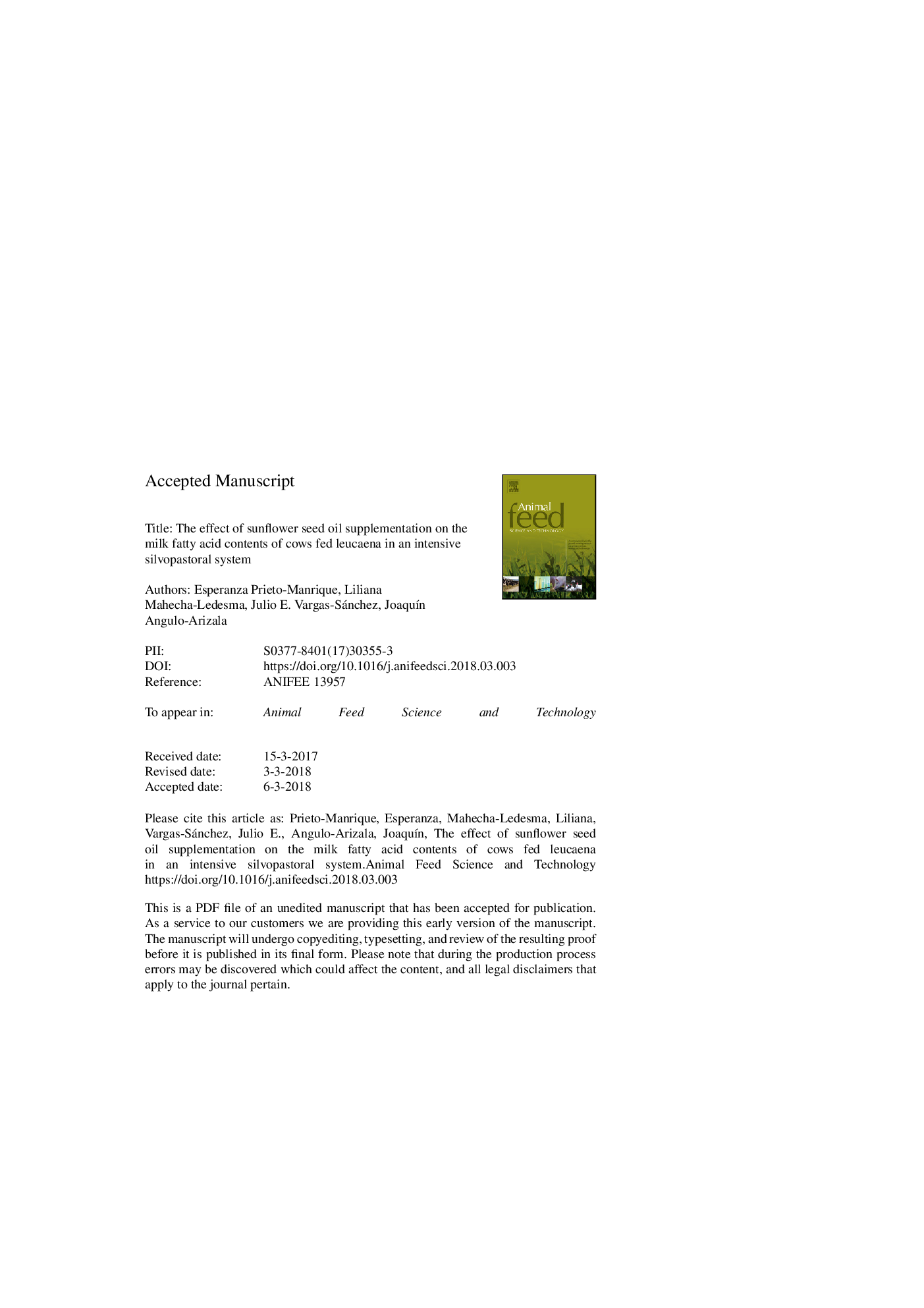| Article ID | Journal | Published Year | Pages | File Type |
|---|---|---|---|---|
| 8490973 | Animal Feed Science and Technology | 2018 | 40 Pages |
Abstract
Transvaccenic acid (TVA), c9t11 conjugated linoleic acid (CLA), and the proportion of unsaturated fatty acids (FAs) in bovine milk are associated with human health benefits. The effect of nutritional supplementation without (NSO) or with sunflower seed oil (63.3% linoleic acid and 28.3% oleic acid) at 20â¯g/kg (SO20) of dry matter (DM) and 40â¯g/kg of DM (SO40) was evaluated in milk cows foraging on Leucaena leucocephala in intensive silvopastoral systems (ISS). Two experiments were performed, the first on a specialized tropical dairy farm (STDF) and the second on a dual-purpose tropical farm (DPTF), where cattle are fed an average of 5.8â¯kg/d and 2.0â¯kg/d of concentrate, respectively, in addition to grazing on pasture. Sunflower seed oil supplementation tended to decrease forage intake but did not affect milk yield or the milk protein and lactose percentages in either experiment. The proportion of fat, total solids, and milk urea nitrogen (MUN) decreased with oil supplementation on the STDF. However, on the DPTF, these three variables did not change significantly when SO20 or SO40 were compared to NSO, but the values were higher for SO20 compared to SO40. The proportion of CLAc9t11 and TVA linearly increased with the two levels of supplementation in both experiments. Furthermore, the atherogenic FAs decreased, and the milk had greater amounts of unsaturated FAs (UFAs) and a lower atherogenic index. Supplementing cows under an ISS with sunflower seed oil increases the proportion of beneficial milk FAs. On the STDF oil supplementation produced milk with a lower fat content and a greater proportion of high-quality fatty acids, presenting an interesting possibility for fat restricted diets.
Keywords
Related Topics
Life Sciences
Agricultural and Biological Sciences
Animal Science and Zoology
Authors
Esperanza Prieto-Manrique, Liliana Mahecha-Ledesma, Julio E. Vargas-Sánchez, JoaquÃn Angulo-Arizala,
